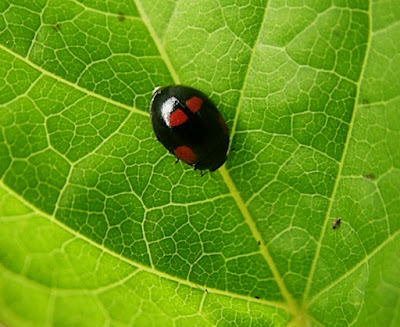This blog may help people explore some of the 'hidden' issues involved in certain media treatments of environmental and scientific issues. Using personal digital images, it's also intended to emphasise seasonal (and other) changes in natural history of the Swansea (South Wales) area. The material should help participants in field-based modules and people generally interested in the natural world. The views are wholly those of the author.
Saturday, 13 July 2024
Insect Colour and Climate Change
An Ecology and Evolution paper lists numerous cases where anthropogenic climate change has altered insect colours. The changes seen are complex and not always consistent. Many, however, involve the pigment melanin. This makes animals darker. Darker insects can consequently heat up more quickly, when basking to become active. Losing the pigment, may keep them cooler. It results, however, in their having less protection from sunlight's UV radiation. Melanin also has a role in immunological responses. One of the recorded effects in the paper (illustrated) is the proportion of Twin spot ladybirds (Adalia 2-punctata), that are black with red spots, as opposed to red with black spots (https://www.theguardian.com/environment/article/2024/jul/13/climate-insect-colours-sex-lives-study). The authors of the paper are concerned that the colour changes may make it difficult for insects to recognise appropriate mates. Humans appear to a real 'pain' for our invertebrate friends. We not only create and spray insecticides, we change the planet they live on and alter their sex lives!
Subscribe to:
Post Comments (Atom)
-
I n the UK and US, a pparently popular and successful vegan/vegetarian restaurants are reportedly closing or adding meat to their menus ( ...
-
Early ripening fruit may seem convenient but some folk think it confirms environmental stress. There's also a possibility th...



%20mating%20NWCW.jpg)


No comments:
Post a Comment